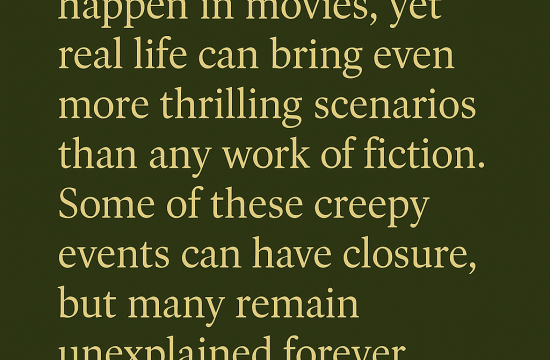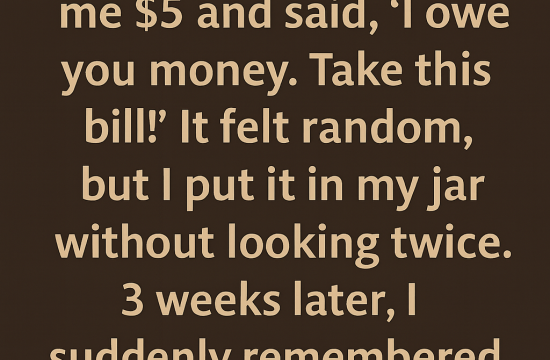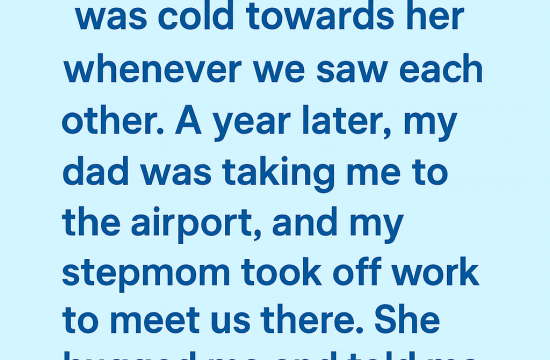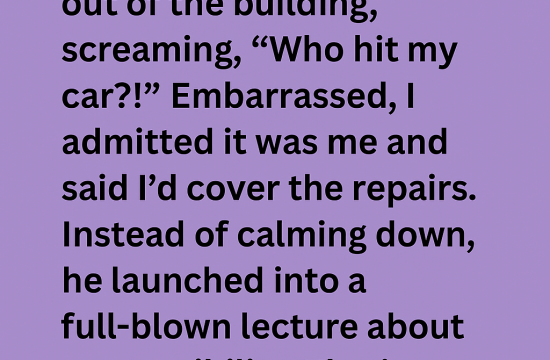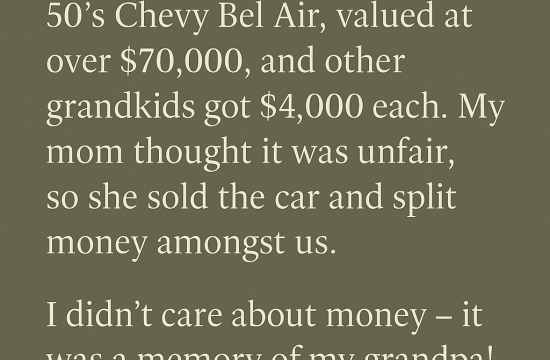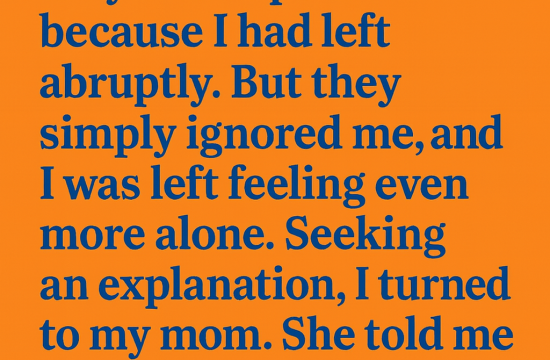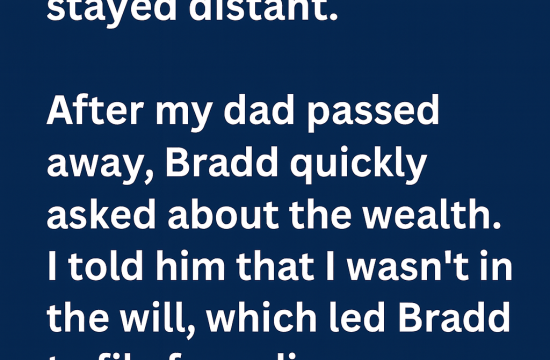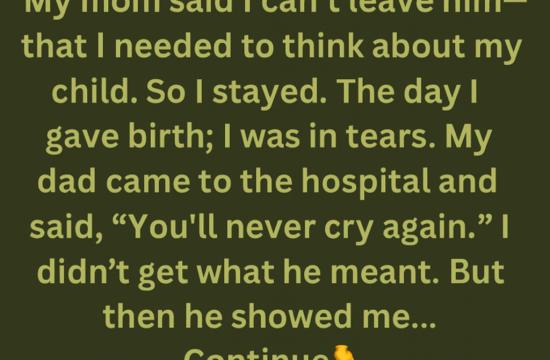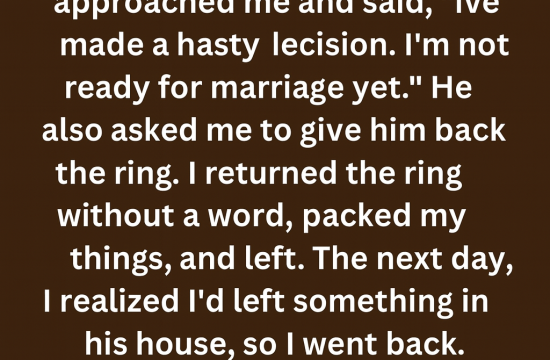My sister begged me to host Mom’s 70th, swearing she’d cover everything. I cooked, cleaned, even rented chairs. As guests arrived, I noticed the catered food bore her company’s logo. I asked if she’d been reimbursed, and she laughed, “I billed it to the estate.” I dropped the cake knife when Dad quietly added, “She’s executor now. She can do things like that.”
The words hit me like a punch in the stomach.
“Wait—what?” I looked at him, stunned. “You made her executor?”
Dad nodded, almost apologetically. “She said it would be less stressful for you. You’ve got a lot on your plate.”
I wanted to scream. I did have a lot going on—two kids, a part-time job, and a husband who traveled more than he was home. But I still called Mom every day, dropped off groceries, and organized every doctor’s appointment when Dad couldn’t. My sister, Carla, lived forty minutes away and barely visited.
Now she was executor of Mom’s estate—and apparently using it like her own personal piggy bank.
I forced a smile as more relatives arrived. It was Mom’s day, not a time for drama. But that comment stuck with me like spinach in your teeth—you just can’t ignore it.
After everyone left and I finished cleaning up, I sat on the couch with a glass of wine and opened the old family binder where we kept wills and documents. Dad had given me the password to the shared drive a year ago when Mom’s memory started slipping.
There it was—Mom and Dad’s updated will, dated just four months ago. Sure enough, Carla was named executor. What stunned me more was the clause that allowed “reasonable compensation” for her time managing the estate.
I felt sick.
That explained the logo. And maybe more.
The next morning, I called Carla. “Hey. Just wanted to clarify—when you said you billed the food to the estate, you meant Mom and Dad’s estate, right?”
She sounded annoyed. “Yes. That’s what it’s for. Celebrating her 70th is part of honoring her life. I logged the expense under ‘legacy preservation.’”
“Legacy preservation?” I repeated, blinking.
“Don’t start,” she snapped. “It’s legal. I’m doing this by the book.”
I hung up. That phrase—“by the book”—was Carla’s shield whenever she was bending rules just enough to still sleep at night.
I decided to pay Dad a visit.
He was watching a documentary about trains when I arrived. Mom was napping upstairs.
“I need to talk to you about Carla,” I said gently.
He muted the TV and gave me a wary look. “What about her?”
“She’s billing personal expenses to your estate fund. She called the catering ‘legacy preservation.’ Has she billed anything else?”
He hesitated, eyes flicking away. “She said the will allows for some compensation.”
“Sure. Reasonable compensation. But she’s paying her own company, Dad.”
He looked down at his hands. “I didn’t realize that.”
Something told me he had suspicions but didn’t want to start a family war. It was easier to just let it go. I didn’t have that luxury.
Over the next few weeks, I dug deeper. With a little nudging, Dad gave me access to the bank statements tied to the estate fund.
That’s when I saw it—Carla had expensed over $12,000 in the last two months. Catering, mileage, “consulting fees,” and even an invoice from a graphic designer labeled “tribute branding.”
She was branding Mom. Like a business.
I didn’t confront her right away. Instead, I printed the statements and asked a friend of mine—Mark, who’s a CPA—to look at them.
His face said it all. “If this isn’t fraud, it’s skating the line.”
When I finally called Carla again, I didn’t yell. I just told her I’d reviewed the estate expenditures and was concerned. She exploded.
“I’m doing all the work, okay? You’re just sitting back and judging!”
“I hosted Mom’s party.”
“I planned it. That was my vision. You just executed.”
That word—executed—landed like a slap.
I hung up again, more hurt than angry this time. She’d always found ways to take credit for things I did. Group science projects, school fundraisers, even decorating Mom’s Christmas tree. She couldn’t let me shine for even a second.
Three days later, I got a letter from her attorney—yes, attorney—asking me to “cease all monitoring of estate financials” as I was “not an authorized party.” She even quoted part of the will that granted her sole discretion unless a majority of beneficiaries objected.
I was stunned. And livid.
I showed the letter to Dad, who went pale. “I never meant for her to have this much power,” he whispered. “Your mom just wanted things to be simple.”
“Well, it’s not simple anymore.”
That night, Dad made a quiet decision. The next morning, I drove him to a law office. We sat down with an estate attorney who helped him revise the will again—this time, placing both Carla and me as co‑executors. Any expense would now require both our signatures.
We didn’t tell Carla right away. Let her enjoy her “legacy branding” phase a little longer.
What we did do, though, was hire a forensic accountant.
Two weeks later, the accountant found over $18,000 in misused estate funds—some routed to Carla’s personal account, not even her business. He also found a few shady invoices that couldn’t be traced to any real vendors.
That was the final straw for Dad. He mailed the revised will to Carla himself.
She called him, screaming. I could hear her through the phone even though it wasn’t on speaker. “You’re letting her manipulate you!”
Dad didn’t budge. “I’m doing what’s fair.”
She didn’t speak to either of us for almost two months.
During that time, Mom took a turn for the worse. Her Alzheimer’s was progressing fast, and she stopped recognizing people outside the immediate family. Carla didn’t call. Didn’t visit. Not even when we hospitalized Mom for a mild stroke.
Then, one quiet Sunday, Carla showed up at the hospital.
She looked tired. Makeup-free. Just her and a grocery bag of crossword books and snacks.
“I came to see Mom,” she said, eyes on the floor. “If that’s okay.”
Dad nodded. I stepped out to give them space.
When I returned, she was holding Mom’s hand, tears running down her cheeks.
Later, in the hospital cafeteria, she slid a manila folder toward me.
“I’m done,” she said.
“What’s this?”
“My resignation. As executor.”
I blinked. “Why now?”
She sighed. “Mom didn’t recognize me. But she remembered a story about how you stayed up all night when she was sick with the flu in college. She kept calling me ‘the tall one,’ but she knew you.”
I didn’t know what to say.
“I messed up,” Carla said, voice cracking. “I treated the estate like a project. Like a business problem to manage. I forgot it’s about people. Mom’s people.”
We sat there quietly, sipping lukewarm coffee.
Carla did more than just resign. She returned the misused funds—every dollar. Mark helped structure it so it wouldn’t trigger a tax issue. We didn’t press charges or bring it up again with extended family.
The truth is, we all mess up. And the hard part isn’t the mistake—it’s what you do after.
Carla came back into the fold. She started visiting Mom regularly, even staying overnight when Dad needed rest. She helped with paperwork, took turns with me on pharmacy runs, and once brought over dinner for my whole family without a word.
When Mom passed quietly in her sleep five months later, Carla was holding her hand.
At the memorial, I gave the eulogy. I talked about Mom’s stubborn optimism and quiet strength. I thanked Dad. And then, I looked at Carla and said, “And to my sister—for reminding us all that it’s never too late to come home.”
Afterward, she hugged me tight, crying into my shoulder.
A few weeks later, as we cleaned out the garage, we found a shoebox labeled in Mom’s handwriting: “For the girls.”
Inside were letters—one for each of us. Mine was full of gentle praise, advice for parenting, and a small folded poem she loved.
Carla’s letter was different. Mom had written, “Please don’t spend so much energy trying to be impressive. Just be present. You’re enough.”
We both sat there crying, shoebox between us.
Life isn’t about who does more or who looks better doing it.
It’s about showing up, doing the next right thing, and remembering that family isn’t a competition—it’s a commitment.



